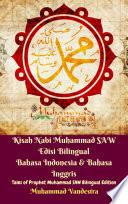13th International Symposium LOPSTR 2003, Uppsala, Sweden, August 25-27, 2003, Revised Selected Papers
This volume contains selected papers from LOPSTR 2003, the 13th Inter- tional Symposium on Logic-Based Program Synthesis and Transformation. The LOPSTR series is devoted to research in logic-based program development. P- ticular topics of interest are speci?cation, synthesis, veri?cation, transformation, specialization, analysis, optimization, composition, reuse, component-based so- ware development, agent-based software development, software architectures, design patterns and frameworks, program re?nement and logics for re?nement, proofs as programs, and applications and tools. LOPSTR 2003 took place at the University of Uppsala from August 25 to August 27 as part of PLI 2003 (Principles, Logics, and Implementations of High- Level Programming Languages). PLI was an ACM-organized confederation of conferences and workshops with ICFP 2003 (ACM-SIGPLAN International C- ference on Functional Programming) and PPDP 2003 (ACM-SIGPLAN Inter- tional Conference on Principles and Practice of Declarative Programming) as the main events. The LOPSTR community pro?ted from the shared lectures of the invited speakers, and the active scienti?c discussions enabled by the co-location. LOPSTR 2003 was the thirteenth in a series of events. Past events were held in Manchester, UK (1991, 1992, 1998), Louvain-la-Neuve, Belgium (1993), Pisa, Italy (1994), Arnhem, The Netherlands (1995), Stockholm, Sweden (1996), L- ven, Belgium (1997), Venice, Italy (1999), London, UK (2000), Paphos, Cyprus (2001), and Madrid, Spain (2002).
We identify a restricted class of terms of the lambda calculus, here called weak
linear, that includes the linear lambda-terms keeping their good properties of
strong normalization, non-duplicating reductions and typability in polynomial time
.










